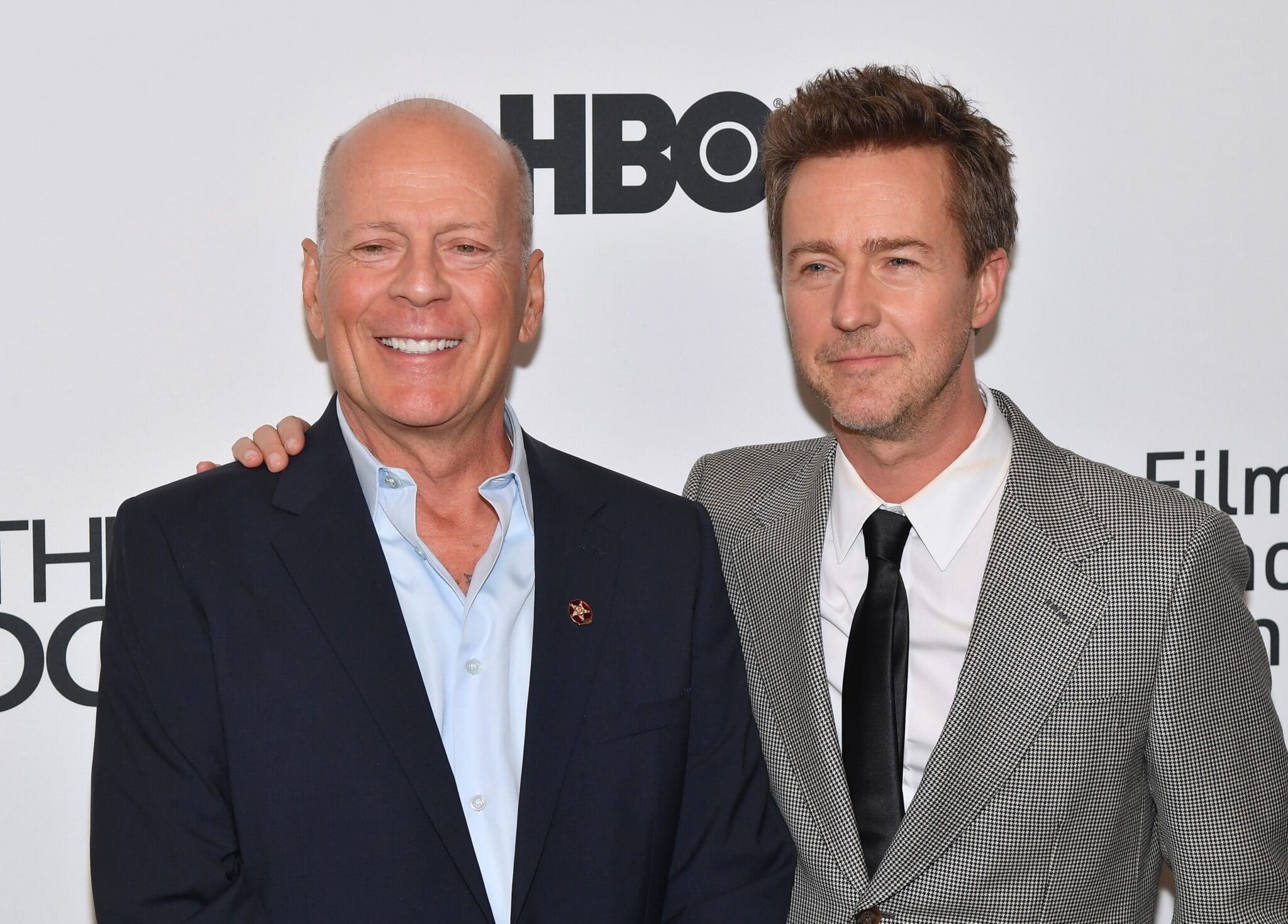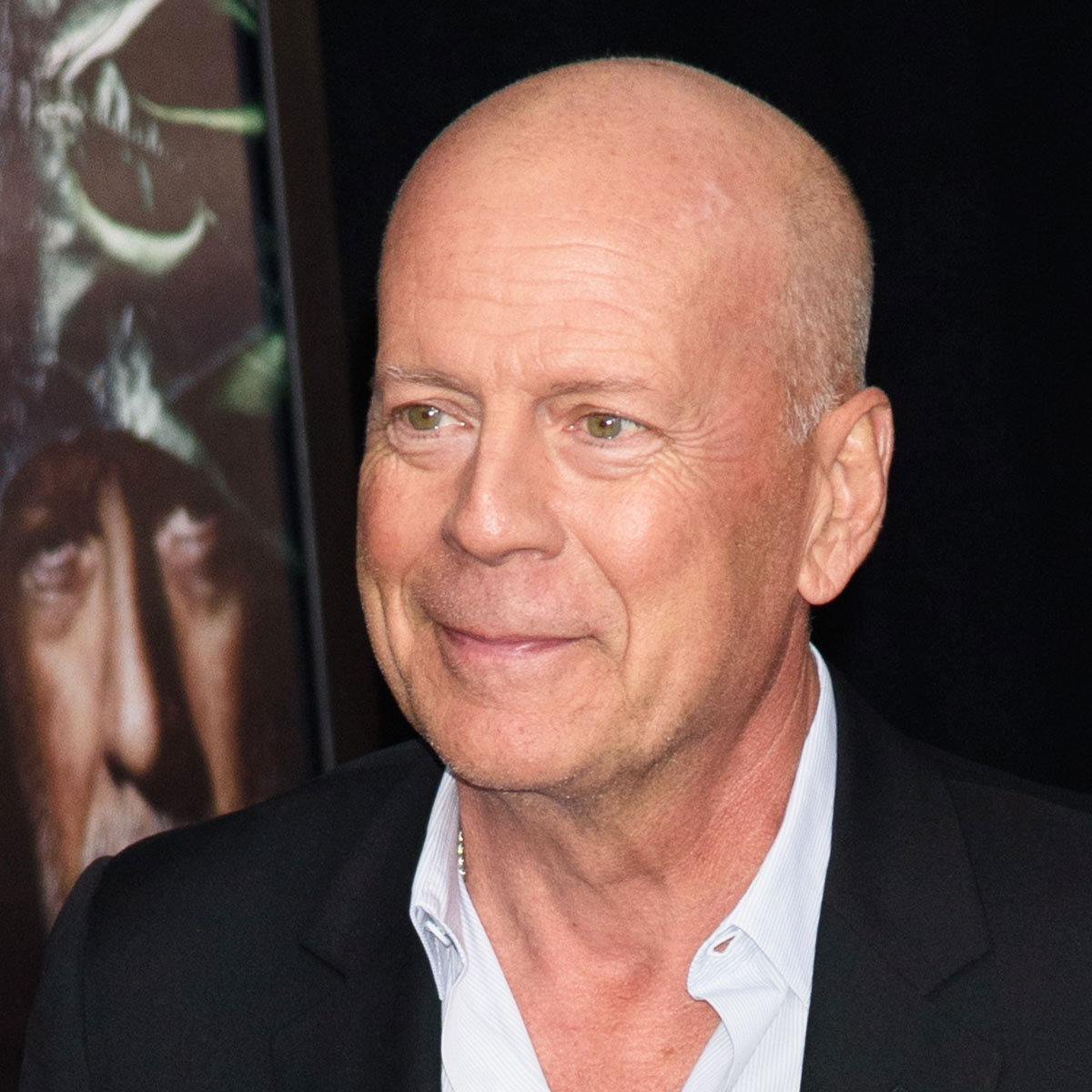It's almost like a quiet shift has happened in the public eye, drawing our attention to someone many of us have watched for years on the big screen. Bruce Willis, a face and voice so familiar, has been in the news lately for something that touches on how we all connect with each other. This is about more than just a famous person; it's about a very human experience, a change in how someone expresses themselves, something many families actually deal with.
You know, for someone whose career was built, in a way, on his quick wit and memorable lines, hearing about a change in his ability to communicate verbally can feel a bit startling. People who've followed his work for a long time are naturally curious, and honestly, a little concerned. It brings up questions about what it means when someone, especially a public figure, goes through something that affects their speech and how they interact with the world around them, more or less.
So, the phrase "bruce willis no verbal" has popped up, and it really points to a broader conversation about how we understand communication beyond just spoken words. It's about looking at the different ways people share thoughts and feelings, and how we can best support those who might find spoken language a bit of a hurdle. This article is going to explore what that might mean, and basically, how we can all approach such situations with a bit more kindness and awareness, you know?
Table of Contents
- Bruce Willis - A Life in the Spotlight
- What is Happening with Bruce Willis's "No Verbal" Communication?
- How Does This Change Things for Bruce Willis's "No Verbal" Interactions?
- Supporting Someone with "No Verbal" Challenges
- Ways Families Adapt to Bruce Willis's "No Verbal" Moments
- Why Public Awareness Matters for Bruce Willis's "No Verbal" Situation?
- The Broader Picture of "No Verbal" Conditions
- What Are Some Other Ways "No Verbal" Conditions Show Up?
- A Legacy Beyond Words
Bruce Willis - A Life in the Spotlight
Bruce Willis, a name that brings to mind a whole lot of action and a certain kind of charm, has been a fixture in popular culture for a really long time. He's been in so many movies, playing characters who are, you know, tough but also sometimes pretty funny. His career spans decades, and he's left a mark on audiences all over the globe. It's quite something to think about how many different roles he's taken on, from saving the world to just being a regular person caught in unusual circumstances, actually.
Born Walter Bruce Willis, he got his start in acting after working different jobs. He found his way to the stage and then, eventually, to television and film. His big break really came with a TV show that blended comedy and mystery, which showed off his ability to be both serious and lighthearted. That show pretty much made him a household name, and from there, his path to becoming a movie star was more or less set. He had this way of connecting with people, a sort of everyman quality that made him very relatable, you know?
His work has brought in a lot of fans, and he's received a good number of honors for his acting over the years. He's one of those actors whose presence on screen always felt, in a way, reliable. You knew what you were getting, and it was usually something pretty entertaining. His performances often had this blend of strength and a hint of vulnerability, which, you know, made his characters feel very real. This enduring presence is part of why so many people feel a connection to him and his story, even now.
- Georgianne Walken Wedding
- Michelle Yeoh Met Gala
- Ronnie Dunn Walked Off Stage During A Concert In Indianapolis
- Nikola Joki%C3%A4 Relationships
- Diddy Blew Up Car
Personal Details and Bio Data
| Full Name | Walter Bruce Willis |
| Birth Date | March 19, 1955 |
| Birth Place | Idar-Oberstein, West Germany |
| Nationality | American |
| Occupation | Actor, Producer |
| Years Active | 1980–2022 |
| Notable Roles | John McClane (Die Hard series), David Dunn (Unbreakable), Butch Coolidge (Pulp Fiction) |
| Spouse(s) | Demi Moore (m. 1987; div. 2000), Emma Heming (m. 2009) |
| Children | 5 daughters |
What is Happening with Bruce Willis's "No Verbal" Communication?
So, when we hear about "bruce willis no verbal," it's about a serious health matter that affects his ability to speak and understand language. It's a condition that changes how someone processes words, both when they're trying to say something and when they're trying to make sense of what others are saying. It's not about intelligence, you know, or thinking clearly; it's about the language parts of the brain. This can be a really challenging thing for anyone to go through, and it affects how they interact with their family and friends, obviously.
This particular situation involves something called frontotemporal dementia, or FTD for short. It's a type of brain change that can cause shifts in personality, behavior, and, yes, communication. For Bruce, it has specifically impacted his verbal abilities, making it tough to form sentences or find the right words. It's a gradual thing, and it means that conversations, which we often take for granted, become a lot more complex and require a different kind of effort, honestly.
The family has been very open about this, which is, you know, a really brave thing to do. They've shared updates to help people understand what's going on, and to bring more awareness to this condition. It’s a way of saying, "This is our reality, and we want to share it with you." This openness has helped a lot of people who might be going through something similar with their own loved ones feel less alone, which is something that really matters, at the end of the day.
How Does This Change Things for Bruce Willis's "No Verbal" Interactions?
Well, when someone experiences "bruce willis no verbal" challenges, daily life changes quite a bit, as you might imagine. Simple things like ordering food, telling a story, or even just saying "hello" can become really difficult. It means that the people around him, especially his family, have to find new ways to connect and understand what he needs or wants to express. It's a process of learning and adapting, and it often involves a lot of patience and observation, basically.
For someone who was known for his distinct voice and delivery in films, this shift is particularly poignant. It's not just about losing the ability to speak clearly; it's also about how that affects a person's sense of self and their connections with others. His family has spoken about how they cherish every moment and how they're finding different ways to communicate, whether through gestures, expressions, or just being present together. It's about finding meaning beyond just words, in a way.
This situation also means that public appearances and interactions become different. What might have once been a quick chat or an interview now requires a different approach, one that respects his current abilities. It's a reminder that communication isn't just about talking; it's about listening, observing, and really trying to meet someone where they are. It's a lesson for all of us, really, in how we interact with people who might have different ways of expressing themselves, you know?
Supporting Someone with "No Verbal" Challenges
When a person is dealing with "no verbal" challenges, like those faced by Bruce Willis, the support system around them becomes incredibly important. It's not just about helping them get by; it's about ensuring they still feel connected, valued, and understood. This often means that family members and close friends become a sort of bridge, helping to interpret and facilitate interactions. It's a role that requires a lot of empathy and a willingness to learn new ways of being together, honestly.
For families, this journey is a bit of an adjustment, a continuous learning experience. They have to figure out what works best for their loved one, which might change over time. It's about creating an environment where communication, even without words, feels natural and comfortable. This could involve using visual cues, simple gestures, or just spending quiet time together. The goal is to keep that bond strong, no matter how the communication landscape shifts, as a matter of fact.
It's also about celebrating the small victories and finding joy in the everyday moments. Even if verbal exchanges are limited, there are so many other ways to share love and connection. A touch, a smile, a shared laugh – these things become even more precious. It's a testament to the strength of human relationships, how they can adapt and find new depths even when faced with significant hurdles, you know?
Ways Families Adapt to Bruce Willis's "No Verbal" Moments
Families who are experiencing "bruce willis no verbal" moments, or similar situations, often develop really special ways to adapt. One common approach is to slow things down, giving the person plenty of time to process information and to respond in their own way. There's no rush, basically, and patience becomes a key ingredient in every interaction. It's about creating a calm space where the pressure to speak is lessened, which can make a big difference, you know?
Another thing families might do is pay very close attention to non-verbal cues. A nod, a shake of the head, a facial expression, or even a slight change in posture can convey a lot. It's like learning a new language, one that relies more on observation and intuition. This helps them understand needs or feelings that might not be put into words. They also might use simple, direct sentences when they speak, to make it easier for the person to grasp what's being said, obviously.
They might also bring in visual aids or objects to help with communication. For example, pointing to pictures or actual items can sometimes help bridge the gap when words are hard to come by. The idea is to reduce frustration for everyone involved and to make sure that the person can still express themselves and be understood, even if it's in a different way. It’s all about finding those creative solutions, really, that work for their particular situation, at the end of the day.
Why Public Awareness Matters for Bruce Willis's "No Verbal" Situation?
Public awareness about "bruce willis no verbal" challenges, and conditions like FTD, is really important for a few reasons. First off, it helps to lessen the stigma that can sometimes come with these kinds of health issues. When people understand what's happening, they're less likely to jump to conclusions or make assumptions. It encourages a more compassionate and informed response from the general public, which is pretty much essential.
Secondly, it helps to educate more people about the signs and symptoms of conditions that affect communication. This means that if someone notices changes in a loved one, they might be more likely to seek help and get a diagnosis sooner. Early understanding can lead to better support and strategies for managing the condition. It’s about making sure that people feel empowered to act, you know, when something seems off.
Finally, increased awareness can also lead to more support for research and resources. When a public figure like Bruce Willis shares their story, it brings a lot of attention to the cause. This can mean more funding for studies, better support groups, and more accessible information for families who are going through similar things. It’s a way of turning a personal challenge into something that can help a lot of others, which is definitely a good thing, you know?
The Broader Picture of "No Verbal" Conditions
While we're talking about Bruce Willis and his specific situation, it's worth remembering that "no verbal" communication challenges are part of a much bigger picture. Many people, for a variety of reasons, experience difficulties with speaking or understanding language. These conditions can stem from different causes, like strokes, brain injuries, or other progressive neurological changes. It's a reminder that communication is a very complex thing, and it can be affected in many different ways, actually.
Understanding these broader communication challenges helps us all be more inclusive and thoughtful in our daily interactions. It encourages us to look beyond just spoken words and to appreciate the many forms that human connection can take. It’s about building a society where everyone feels like they have a voice, even if that voice doesn't always use traditional words. This kind of awareness helps to create a more supportive environment for absolutely everyone, you know?
It's also about recognizing that communication difficulties don't define a person's worth or their ability to contribute. People with "no verbal" conditions still have thoughts, feelings, and experiences to share. It's up to us, as a society, to create pathways for those expressions to happen. This means being patient, being creative, and being open to different ways of interacting. It’s a collective effort, more or less, to make sure everyone feels seen and heard.
What Are Some Other Ways "No Verbal" Conditions Show Up?
So, when we talk about "no verbal" challenges, it's not just one thing; they can show up in lots of different forms, you know? For some people, it might be aphasia, which can make it hard to retrieve words or to put sentences together, even though they know what they want to say. This can happen after a stroke, for example. It's like the words are just out of reach, which can be incredibly frustrating for the person experiencing it, obviously.
Then there are conditions where the muscles used for speech don't work quite right, making words sound slurred or difficult to articulate. This is different from not being able to find the words; it's about the physical act of speaking. People might understand everything perfectly well, but their voice just doesn't cooperate. It’s a bit like trying to run with your shoelaces tied together, in a way, if that makes sense.
Other times, the challenge might be with understanding language, where words just don't make sense, even if they're heard clearly. This can be really disorienting and can make everyday conversations feel like a puzzle. So, as you can see, the term "no verbal" covers a pretty wide range of experiences, and each person's journey with it is unique. It really highlights how precious and intricate our ability to communicate truly is, you know?
A Legacy Beyond Words
Bruce Willis has given us so much through his
- Nicholas Riccio Wives And Children
- Georgianne Walken Wedding
- Larsa Pippen Kids
- Michelle Yeoh Met Gala
- Matteo Firth


